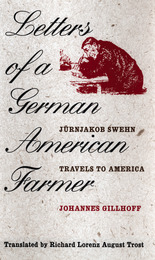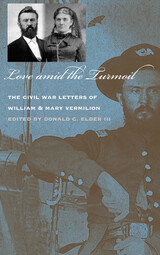5 start with L start with L


Early in the twentieth century, drawing upon the hundreds of letters written to his father by students who had emigrated to northeastern Iowa from Mecklenburg, in northeastern Germany, Johannes Gillhoff created the composite character of Juernjakob Swehn: the archetype of the upright, honest mensch who personified the German immigrant, on his way to a better life through ambition and hard work. Gillhoff's farmer-hero, planting and harvesting his Iowa acres, joking with his neighbors during the snowy winters, building a church with his own hands, proved so popular with the German public that a million copies of Jürnjakob Swehn der Amerikafahrer are in print. Now for the first time this wise and endearing book is available in English.
“First, let's talk about pigs,”Juernjakob Swehn writes from his farm in Iowa. “In America, pigs have a curly tail and talk in Low German so I can understand them.” Swehn builds a log house and makes a success of farming, marries a woman who's “a whole different nation that has its confidence from the inside,” raises a family, and becomes an elder in the Lutheran church. He recognizes his good fortune but acknowledges that memories of his village grow stronger every year, that “being homesick is the best thing that home can do for you …no power on earth holds on to you like your homeland.” It is this sense of home, both in Iowa and in Mecklenburg, that makes Juernjakob Swehn appeal to today's readers as much as he appealed to readers in 1916.

His memoir, interspersed with personal wisdom gleaned over more than six decades of service and leadership, encapsulates Sandy’s shrewd yet optimistic view of the public university as an institution. At every stage in his life—in the U.S. Navy during World War II, while practicing law or teaching, and in leadership positions at Chicago’s Field Museum and the University of Iowa— Sandy relied on his principles of open disclosure, inclusiveness, and respect for differences to guide him on issues that matter.
This chronicle of Sandy’s experiences throughout his life shows us the evolution both of the University of Iowa and of the nation writ large. More importantly, this book gives us a lens through which to examine our present situation, whether debating free speech on campus, the role of the arts and humanities in civil society, or the importance of funding for educational and cultural institutions.


William Vermilion (1830-1894) served as a captain in Company F of the 36th Iowa Infantry from October 1862 until September 1865. Although he was a physician in Iconium in south central Iowa at the start of the war, after it ended he became a noted lawyer in nearby Centerville; he was also a state senator from 1869 to 1872. Mary Vermilion (1831-1883) was a schoolteacher who grew up in Indiana; she and William married in 1858. In this volume historian Donald Elder provides a careful selection from the hundreds of supportive, informative, and heart-wrenching letters that they wrote each other during the war—the most complete collection of letters exchanged between a husband and a wife during the Civil War.
READERS
Browse our collection.
PUBLISHERS
See BiblioVault's publisher services.
STUDENT SERVICES
Files for college accessibility offices.
UChicago Accessibility Resources
home | accessibility | search | about | contact us
BiblioVault ® 2001 - 2024
The University of Chicago Press









